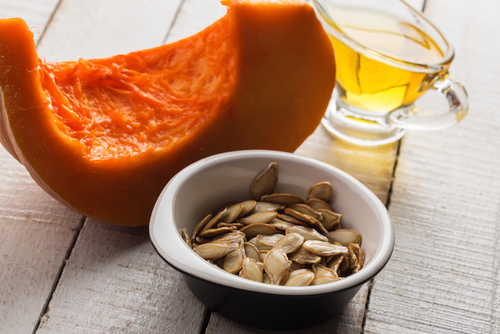
Features
Nutrition
Wellness
Health food’s top trends for 2015
 The Canadian Health Food Association (CHFA) today announced the top five trends Canadians should be aware of when shopping at their local health food store in 2015. With winter in full swing, Canadians are eager for the inside scoop on new, effective ways to optimize their health, naturally, throughout the season and into the New Year.
The Canadian Health Food Association (CHFA) today announced the top five trends Canadians should be aware of when shopping at their local health food store in 2015. With winter in full swing, Canadians are eager for the inside scoop on new, effective ways to optimize their health, naturally, throughout the season and into the New Year.
January 6, 2015 By Massage Therapy Canada staff
“The holidays are a time when Canadians are more focused on spending
quality time with friends and family and tend to forget about diets and
ease up on exercise,” said CHFA president Helen Long. "The new year is
an opportunity to make or renew resolutions and reinvigorate healthy
habits or create new ones. By sharing these new trends, we hope to help
Canadians discover new, exciting, natural solutions to help them enjoy a
healthy 2015.”
The top five trends, according to the CHFA, are:
New and interesting oils with fancy fats
In
2014 coconut oil was all the rage, and while it has many health
benefits, we are seeing more and more people using unconventional oils,
each offering their own unique health advantages. Some of the oils that
will be trending in 2015, include:
Avocado Oil – Rich in
monounsaturated fats and Vitamin E and with a high smoke point which
makes it better for use in cooking than olive oil.
Camelina Oil – Rich in mono- and poly-unsaturated fats with high proportion of Omega-3s for cardiovascular health.
Flax Seed Oil – Rich in alpha-linolenic Omega-3 fats.
Digestive health
Digestive
health is poised to reign supreme in 2015. Increasingly, natural health
products that support digestion, including a diversifying probiotic
category, are being linked to health benefits beyond digestive and
intestinal health, such as mental health, skin health and weight
maintenance, among other benefits. In 2015 consumers can expect to see
new natural health products focused on supporting the health of the
digestive tract, including L-glutamine, new probiotics and different
forms of dietary fibre.
Fermentation
The trend of supporting
digestion also extends to fermented foods, which are no longer limited
to kimchi, tempeh and sauerkraut. Fermentation can liberate nutrients in
foods and help our body better absorb them. The process of fermentation
also increases some anti-inflammatory and anti-oxidant compounds in
foods. In 2015, consumers should expect to see a plethora of new foods
in different fermented forms including bars, powders and capsules.
Pumpkin
Pumpkin
is primed to be the Kale of 2015. From oils to seeds, we are going to
see an increase in the use of pumpkin in healthy products across the
country. This unique vegetable has many health benefits and has been
linked to heightened prostate and urinary tract health. Pumpkin seeds
are also rich in B vitamins, vitamin E, zinc and essential fatty acids.
Pumpkin flesh also touts strong health benefits, as it is rich in
nutrients including beta-carotene, a pre-cursor to Vitamin A, crucial
for healthy reproduction, immune system, health and vision.
GMO labeling
In
more than 60 countries around the world, including Australia, Japan,
and all the countries in the European Union, there are significant
restrictions or outright bans on the production and sale of food
containing GMOs. In Canada, GMO labelling demands are on the rise as we
see an increase in consumers demanding to know where their food comes
from and the impact that producing it has on the environment. While the
debate surrounding GMO foods continues, suppliers are increasingly
stepping up to the plate and offering certified organic products, which
is an assurance that foods are produced without the use of GMOs. Through
third-party certification, such as Non-GMO Project Verified and Organic
Certification, suppliers will continue to voluntarily disclose that
their products are produced without the use of GMOs. This trend will
continue throughout 2015 in response to consumer demands and increasing
labeling activism in Canada.
“We hope Canadians embrace these new
trends in 2015,” said holistic nutritionist, Michelle W. Book. “If they
do, they will enjoy a great increase in their well-being, as health is a
life-long journey that includes healthy foods, exercise and natural
health products.”
The CHFA is Canada’s largest national trade
association dedicated to the natural health and organic products
industry. The association represents manufacturers, retailers,
wholesalers, distributors and importers of natural health and organic
products, including foods, vitamin and mineral supplements, herbal
products, homeopathics, sports nutrition products, health and beauty
aids. With a membership of over 1,000 business owners and operators
across the country, CHFA represents an industry that contributes $6
billion to the Canadian economy.
Print this page